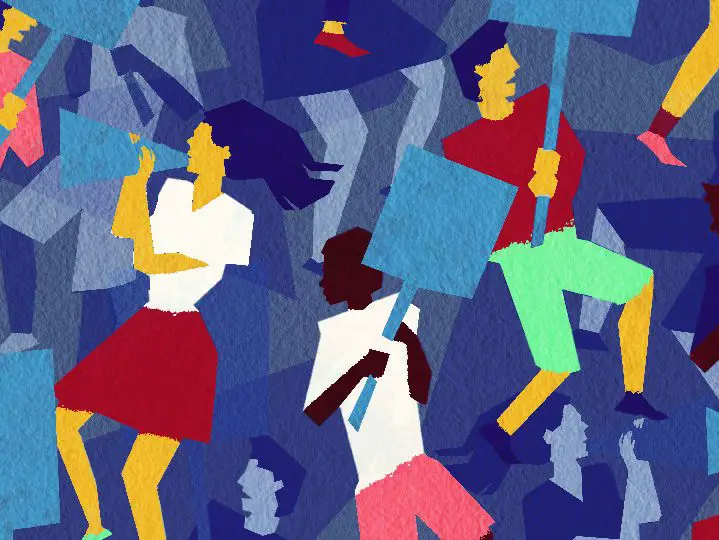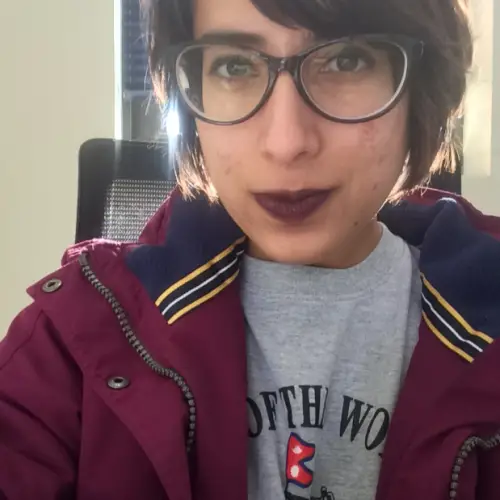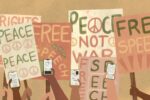The teenage survivors of the Marjory Stoneman Douglas High School shooting in Parkland have shown tireless devotion to their cause, consistently speaking out for gun control and creating a real movement out of #NeverAgain. The survivors have also been absolutely roasting pro-gun commentators on Twitter.
From shutting down Bill O’Reilly’s suggestion that survivors are too emotionally vulnerable and susceptible to peer pressure to have their own opinions, to ruthlessly mocking the conspiracy theory that they are actually “crisis actors,” the survivors have shown humor, grace and pure, unadulterated Gen Z Twitter acumen that these commentators could only hope to compete with.
Despite pushback from status quo defenders, survivors have been actively voicing their frustrations and organizing for change, both online and in the real world.
Older adults representing the establishment have often drastically underestimated the intelligence and determination of young people, and time and time again, young people have proven them wrong.
Despite being discounted by older adults, students have long been spearheading social and political movements in ways that have led to real change. In honor of the activism of the Parkland students, as well as in preparation for the national school walkout planned for April 20, here is a short history of student-led protest movements in the U.S.
1. Civil Rights Protests: The Freedom Rides (1961) and Voter Registration (1963-1964)
Led by John Lewis and later by Stokely Carmichael, the Student Nonviolent Coordinating Committee (SNCC) was essentially the student arm of the Civil Rights Movement. In 1961, the Congress on Racial Equality (CORE) organized the Freedom Rides, testing a 1960 Supreme Court decision that outlawed segregated interstate bus terminals.
After Freedom Riders were repeatedly attacked and their bus was bombed, SNCC secretary Diane Nash sent 10 students from Nashville to complete the Rides. The Freedom Rides achieved real results, too: the Interstate Commerce Commission was forced to put out regulations barring segregated interstate transit terminals.
Not only was SNCC involved with the Freedom Rides, SNCC members were also vital in the push to register black voters in the South, as well as the formation of the Mississippi Freedom Democratic Party, both of which were direct threats to all-white, status quo Dixiecrats. With these initiatives and many more, the SNCC was a testament to the power of young people to affect change on a national level and to challenge status-quo white supremacy.
2. Free Speech Movement (1964-1965)
Free speech on college campuses was not always a given. In the early days of ’60s upheaval, students at UC Berkeley found that the school administration would not allow them to set up information tables distributing literature on the Civil Rights Movement. After one student was arrested for distributing civil rights literature, the Free Speech Movement was born.
Berkeley students, led by classmate and gifted orator Mario Savio, organized a sit-in that resulted in 800 students being arrested, in some cases violently. This violence led the Berkeley administration to lift the ban on political activity—and so today, college students can thank the Free Speech Movement for their ability to speak on issues that matter to them on campus, as well as for cementing the sit-in as a vital tool for campus direct action.
3. Anti-War Movement: Tinker vs. Des Moines (1969) and Kent State (1970)
In 1965, siblings Mary Beth (13 years old) and John Tinker (15 years old) were suspended from school for wearing black armbands as a protest against the Vietnam War. Their case was taken all the way up to the Supreme Court, which eventually ruled in 1969 that students have the right to free expression as long as this expression does not disrupt the learning process or school operations.
This was a huge win for free speech in public school: the decision paved the way for subsequent political action by high school students, including the #NeverAgain movement.
Anti-war protests on college campuses were common in the late ’60s and ’70s, but it is the infamous police reaction to an anti-war protest at Kent State that remains vividly in the public imagination. When protests started to be accompanied by vandalism and the ROTC building was set on fire, the National Guard was called in.
Soon after, a guardsman opened fire into a crowd of unarmed protesters, killing four students. Images of students lying motionless on the ground galvanized Americans: protests erupted on college campuses across the U.S. in reaction, and Americans were further reminded of the cost of the Vietnam War.
4. Divestment from South Africa Movement (1970s and 80s)
In the 1970s and ’80s, students began to see the use of their tuition dollars as a ground for social action. In reaction to the violence and racism of apartheid, college students across the U.S. organized sit-ins and hunger strikes, demanding that universities halt all investment with firms that did business in South Africa.
In the end, this effort by students led to billions of dollars being divested, putting significant economic pressure on the apartheid regime, which was eventually toppled in 1991. The divestment movement continues today, with this generation’s students putting pressure on universities to halt investment with fossil-fuel companies.
5. University of Missouri Protests (2015)
A more recent example of successful student protest occurred in 2015 at the University of Missouri. When the administration did little to address several racist incidents that occurred on campus, students organized to demand a real response.
The protest eventually spread to the football team, who threatened to strike, forcing Mizzou president Tim Wolfe to step down in disgrace. In this way, students were able to use the tools of direct action and the importance of college sports as vital assets to their cause, and their efforts led to a win for anti-racist activism at Mizzou.

















